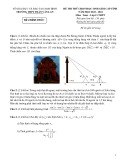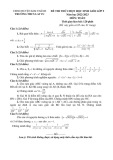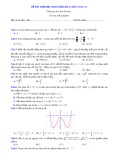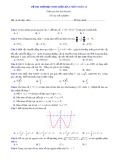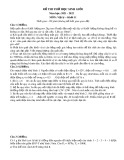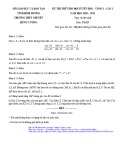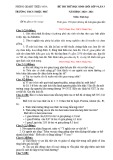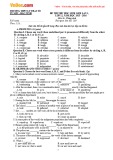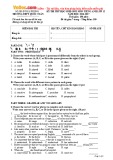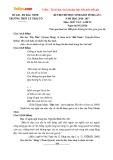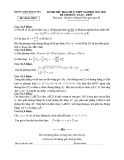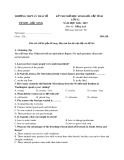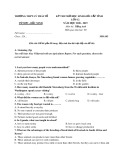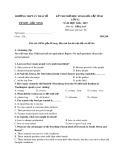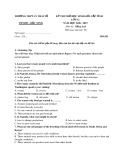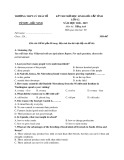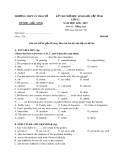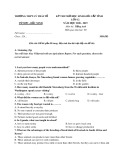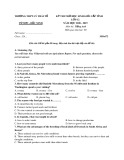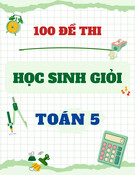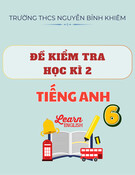
TR NG THPT LÝ THÁI T K THI TH H C SINH GI I C P T NH ƯỜ Ổ Ỳ Ử Ọ Ỏ Ấ Ỉ
L P 12 Ớ
T S N - B C NINHỪ Ơ Ắ NĂM H C 2018 - 2019Ọ
Môn thi: Ti ng Anhế
Th i gian làm bài: 90’ờ
Full name: ………………………………
Class: 12A… MĐ:564
(Ghi chú: Đ thi g m 08 trang. ề ồ H c sinh làm bài tr c ti p vào đ thi).ọ ự ế ề
A. VOCABULARY (4p)
Choose the best word from A, B, C, and D that fits each blank.
1. The general is always …………about his past campaigns.
A. boasting B. praising C. complimenting D. congratulating
2. The prospects of picking up any survivors are now………
A. thin B. slim C. restricted D. narrow
3. Sheila couldn’t attend the meeting as the date……..with her holidays.
A. clashed B. struck C. opposed D. occurred
4. You had agreed to take part in our anti-war march, why did you cop out?
A. die B. retreat C. act rashly D. attend
5. His success……….his mother’s heart.
A. greeted B. rejoiced C. welcomed D. cheered
6. A newspaper’s opinions are given in its……….
A. cartoon B. editorial C. reports D. titles
7. Mr Brown is not a serious investor, but he likes to…….in the stock market.
A. splash B. splatter C. paddle D. dabble
8. ………are the formal rules of correct or polite behavior among people using the Internet.
A. Traffic rules B. Family rules C. Codes of etiquettes D. Codes of netiquettes
9. I can’t possibly lend you any more money, it is quite out of the……..
A. impossible B. question C. order D. practice
10. The dish was so tasty that I asked for a second……….
A. portion B. helping C. ration D. share
B. STRUCTURE AND GRAMMAR (2p)
1. I use weed-killer to……….the weeds in the garden.
A. get rid of B. get out of C. get away with D. get in the way with
2. After the funeral, the residents of the apartment building……..
A. sent to the cemetery each week flowers faithfully
B. sent faithfully flowers all week to the cemetery
C. sent flowers faithfully to the cemetery each week





